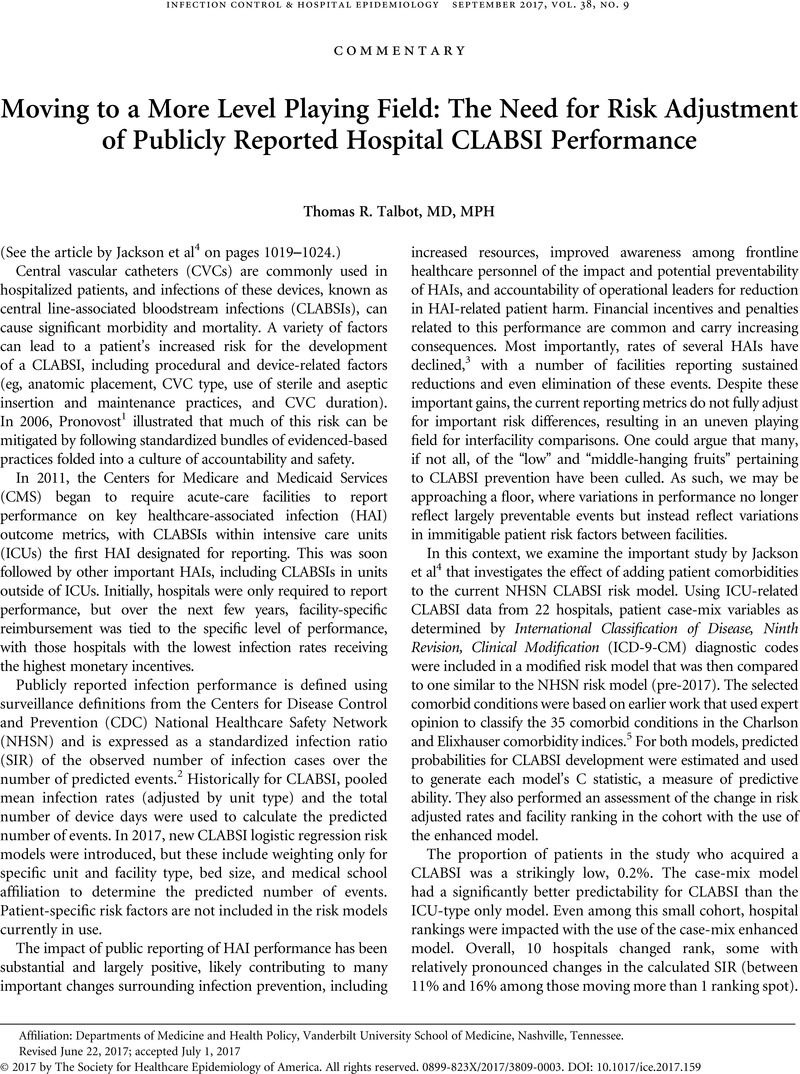Crossref Citations
This article has been cited by the following publications. This list is generated based on data provided by Crossref.
Dube, William C.
Jacob, Jesse T.
Zheng, Ziduo
Huang, Yijian
Robichaux, Chad
Steinberg, James P.
and
Fridkin, Scott K.
2020.
Comparison of Rates of Central Line–Associated Bloodstream Infections in Patients With 1 vs 2 Central Venous Catheters.
JAMA Network Open,
Vol. 3,
Issue. 3,
p.
e200396.



